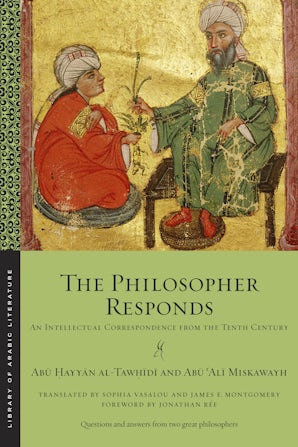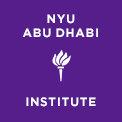
The Philosopher Responds
An Intellectual Correspondence from the Tenth Century
446 Pages
March 2021
ISBN: 9781479806355
Questions and answers from two great philosophers
Why is laughter contagious? Why do mountains exist? Why do we long for the past, even if it is scarred by suffering? Spanning a vast array of subjects that range from the philosophical to the theological, from the philological to the scientific, The Philosopher Responds is the record of a set of questions put by the litterateur Abū Ḥayyān al-Tawḥīdī to the philosopher and historian Abū ʿAlī Miskawayh. Both figures were foremost contributors to the remarkable flowering of cultural and intellectual life that took place in the Islamic world during the reign of the Buyid dynasty in the fourth/tenth century.
The correspondence between al-Tawḥīdī and Miskawayh holds a mirror to many of the debates of the time and reflects the spirit of rationalistic inquiry that animated their era. It also provides insight into the intellectual outlooks of two thinkers who were divided as much by their distinctive temperaments as by the very different trajectories of their professional careers. Alternately whimsical and tragic, trivial and profound, al-Tawḥīdī’s questions provoke an interaction as interesting in its spiritedness as in its content.
An English-only edition.
Reviews
-
"Tawhidi’s questions are often epigrammatic essays; they assert the limits of human reason and dwell on man’s 'deficiencies,' while evincing a Johnsonian keenness towards observing the contradictions of the human character, the fortunes of life and the spirit of the age. . . . There was no better recorder of his distempered century than Tawhidi; but there was also no other thinker of his time whose disillusioned and restless spirit is more modern, or whose character comes across more strongly in his writings."
— Times Literary Supplement
-
"A fascinating read, particularly for the aspiring scholar of classical Arabic texts, who will benefit from a solid English translation alongside the original Arabic."
— Al Jadid
-
"...Through an elegant and fluent English translation, makes this unique work accessible to an audience of non-specialists."
— Bulletin of the School of Oriental and African Studies
-
"A marvel of literary finesse, of an English style seemingly able to match the often ornate prose of the Arabic... A pleasure to read throughout."
— Journal of Near Eastern Studies
eBooks
Exam Copy
Please list your name, institutional affiliation, course name and size, and institution address. NYU Press will cancel exam copy orders if information cannot be verified.

